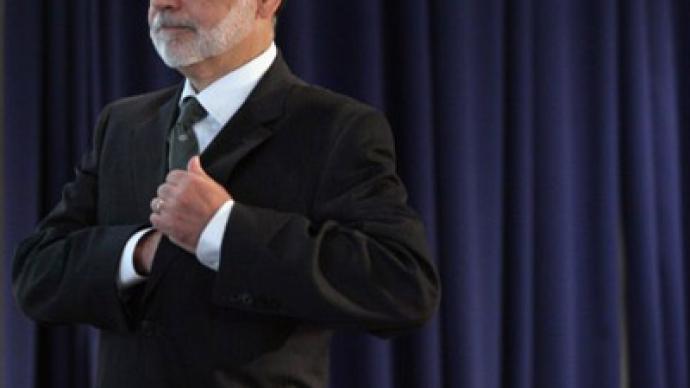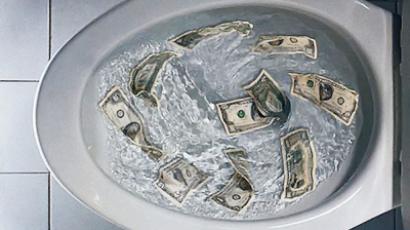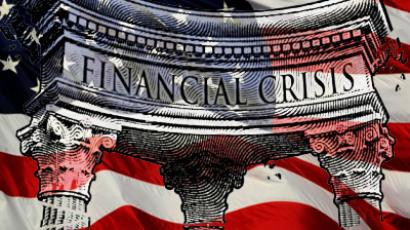Bernanke admits jobs problem is a national crisis - and the FED can't do much

The head of the Federal Reserve is saying that the United States is currently undergoing a “national crisis” due to the continuingly disappointing unemployment figures.
Speaking from Cleveland, Ohio this week, Federal Reserve Chairman Ben Bernanke fielded questions from a crowd and opened up on the critical situation that is continuing to impact millions of Americans."This unemployment situation we have, the jobs situation, is really a national crisis," Bernanke said from the InterContinental Hotel. "We've had now close to 10 percent unemployment for a number of years. Of the people who are unemployed, about 45 percent have been unemployed for six months or more.”And while Bernanke acknowledged that the Fed has attempted to do what they can to correct the problem, he also said that only so much can be done on his side to switch things up."Monetary policy can do a lot but it's not a panacea. It can't solve all of the problems," Bernanke said on Wednesday. Last week the Federal Reserve announced that they would begin a $400 billion program that would try to rejuvenate the economy by selling off short-term bond notes and exchange them for long term Treasuries, hoping investors will plop their money into riskier ventures. In a statement from that September 21 announcement, the Fed acknowledged the unemployment problem which has seen little change in past months."Recent indicators point to continuing weakness in overall labor market conditions, and the unemployment rate remains elevated," read a statement from the Fed.Earlier this summer, Bernanke told reporters, "The economic healing will take a while, and there may be setbacks along the way."Months later in Cleveland this week, Bernanke remains still unsure of what else the country can do to jump start jobs numbers. The number of unemployed Americans has remained at or above 9 percent almost every month since April 2009.“This is unheard of," Bernanke said yesterday. "This has never happened in the post-war period in the United States. Those folks who have been out of work for six months or a year or two years – obviously they are losing the skills they had, their connections, their attachment to the labor force. Policies that could help them find work, train for work and retain their skills and to contribute to a productive society . . . that's another area where other parts of the government could contribute to help the economy recover."Chairman Bernanke did not pinpoint a solution but tip-toed around the posturing in Congress that many say is keeping a concrete plan to save the economy and jump-start the jobs figures. "We have a lot of problems both in terms of recovery and in terms of longer term growth. It's hard for me – I have to be non-partisan – it's hard for me to be very specific about individual actions. But there certainly are some areas where policymakers could contribute."RT reported yesterday that in a provision in President Barack Obama’s American Jobs Act, Americans that are refused a job based on current employment status could file suit against would be employers. That provision, of course, would only become legalized if lawmakers from both sides of the aisle agree to approve the president’s legislation.













